
Explore the top rated Glendale drug rehabs with confidence. We've analyzed each of the 25 addiction treatment centers in Glendale, CA for patient reviews, clinical credentials, transparency, and brand reputation to identify the best rehab programs.
Filter by inpatient, outpatient, detox, health insurance, specialty program and more to quickly find the best drug and alcohol rehab in Glendale.Our Methodology
Rehab Score
Our Rehab Score is designed to make it easier for you to find the best treatment centers. We combine overall ratings with recent feedback to create a score that reflects a center's quality right now.
.

| Name / Address / Rating | Description | Treatments / Programs / Payment Options | Review / Contact | Images | |
|---|---|---|---|---|---|
Glendale, CA | Western Pacific Med Corp is an outpatient treatment center for opioid addiction in Glendale, California. They use an evidence based approach that combines specialized medications for opioid addiction with therapy and addiction education. The medications they use here are designed to reduce your cravings for opioids and your withdrawal symptoms. Thi | Treatments Programs Payment Options | Kind staff and cool security guard, honestly I love everything about the clinic but the only thing I don't like is the harassment I have to always go threw from Glendale police department because they always decide to just drive by the clinic like 50 times a day and just whoever they see exiting or entering pullover just to search, and one thing that socks about Glendale is the officers don't care about ur rights, u can refuse to be searched or seized and they still will do whatever they feel like, so just keep a lookout if your a person like me that's known by the harassing officers of the police department in glendale!!!!
Vagreg Trossian
1 year ago
My own experience is thaty r real nice
Crystal Sambona
1 year ago
Sure it is a monitor by a doctor drug, but at least I know I'm not waking up in jail. So to anybody that is thinking about doing it try it for the 21day detox. If not for u then get off n go back to what u where doing.
Crystal M..
Steven Matuskey
2 years ago
| 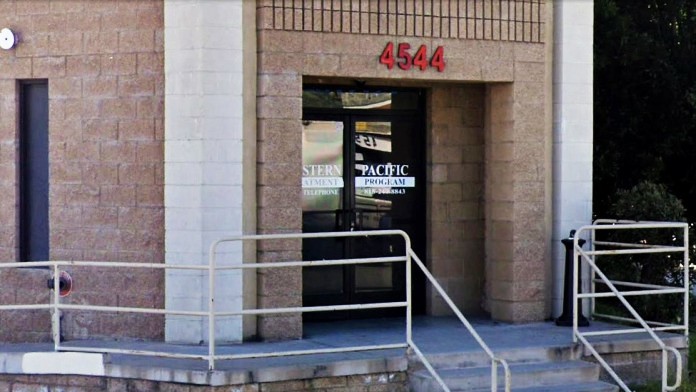
2 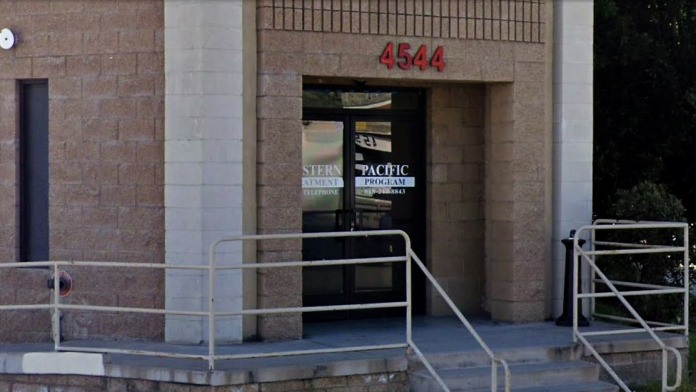
| |
Glendale, CA | Psychiatric Institute, located in Glendale, California is a private alcohol and drug rehab that offers treatment for a variety of substance abuse addictions including alcoholism, co-occurring mental health disorders, and opiate addiction. They offer supervised medical treatment to safely manage withdrawal symptoms during detoxification, residential | Treatments Programs Payment Options | I had a CAT scan on my heart and I could not have been more pleased by all of the staff who assisted me - from registering until the procedure was complete. Everyone was so friendly and helpful. Everything was explained in detail before it the procedure was done. I was asked if I had any questions after things were explained to me. I knew exactly what to expect. It was not at all scary and all who treated me were extremely friendly and warm and loving. They made it a very pleasant experience.
Jane Morrison
1 month ago
Friendly.
sheila lindsey
1 month ago
From Roxanne to Cesar to Flor and all in the first floor Kudos! RN’s Sona, Melissa,Andi and Anastasia No One could be kinder and more professional. NA’s Anthony and Bridget you are the best. Of course, Dr Badr is a genius. He and his team, anesthesiologist, nurses etc. are the best. Glendale Adventist Hospital is the best in Los Angeles
Drummer Billy Paul
1 month ago
| 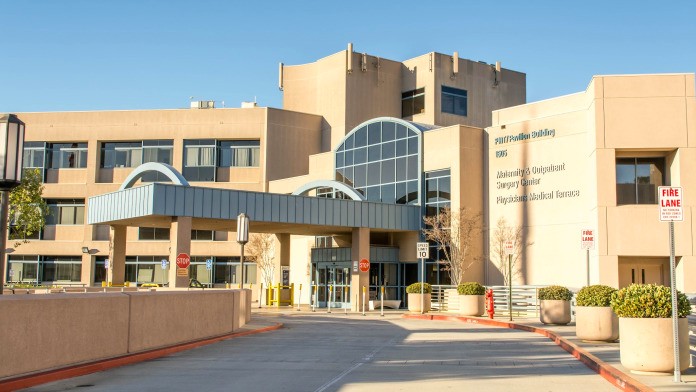
5 5 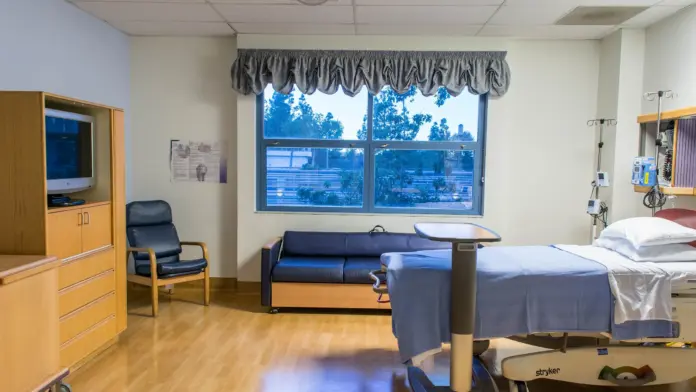
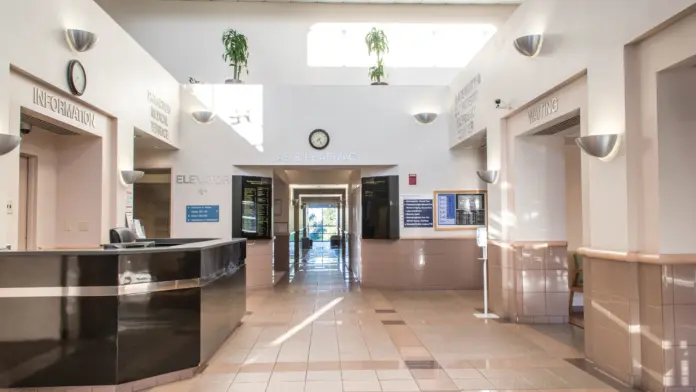
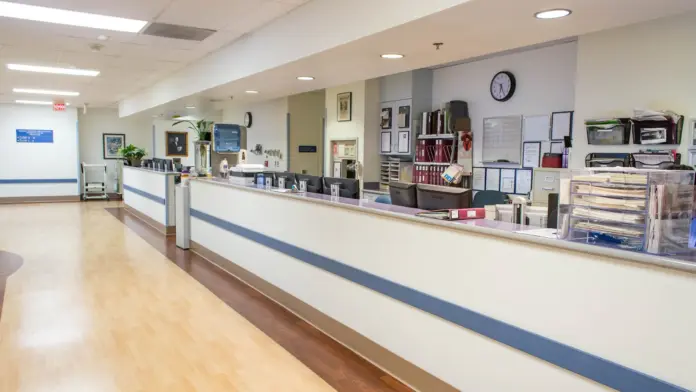
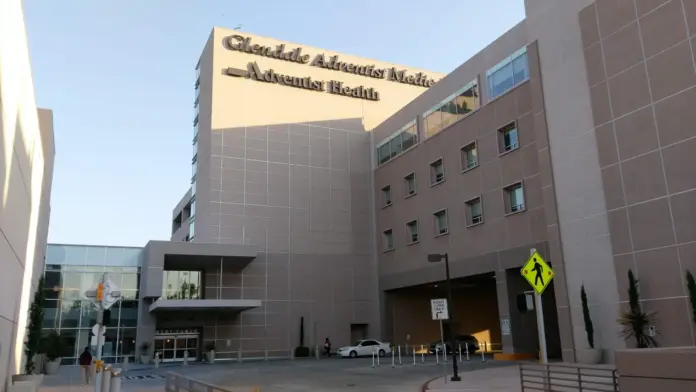
| |
Glendale, CA | Right On Programs offers office-based addiction and mental health treatment for adults. Located in Glendale, California, clients can also access valuable community resources, including referrals, counseling, diversion programs, and family support services. Right On Programs’ treatment begins with a mental health assessment to screen for symp | Treatments Programs Payment Options | Javier Games 😁 instructor 10/10
Staff friendly
J G
3 months ago
I highly recommend Jessel--she's truly the best! I've been with her for a long time, and she's so professional and helpful. If you're looking for a place to take the program, definitely choose Jessel; you won't be disappointed!
Feidar Omer
3 months ago
This is a great program with wonderful instructors that actually care, put in the work and time with you, I highly recommend it. Melvin was the best, thank you so much for your dedication!!
Elvie S.
3 months ago
| 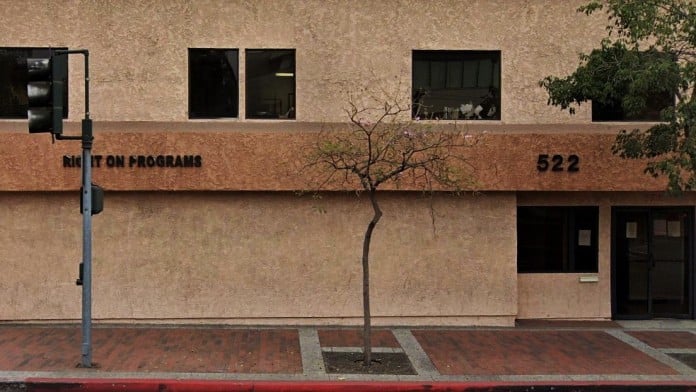
| |
Able2Change Orange County Drug & Alcohol RehabAd This is an ad and Able2Change Orange County Drug & Alcohol Rehab is a paid advertiser. Paid advertisers may be listed first in search results. This ad may contain content provided by the advertiser. Rehab.com does not verify ad content or any reviews that are displayed. Learn More San Juan Capistrano, CA | Able to Change Recovery is in San Juan Capistrano, California. It’s a drug and alcohol rehab center for adults and young adults. The program offers residential care, partial hospitalization, intensive outpatient, and aftercare programs. Residential care is a minimum of 28 days. You’ll have 24-hour supervision, assessments, individual and | Treatments Programs Payment Options | View Website (866) 225-3260 | Able2Change Orange County Drug & Alcohol Rehab has no reviews yet. Leave a review.
| 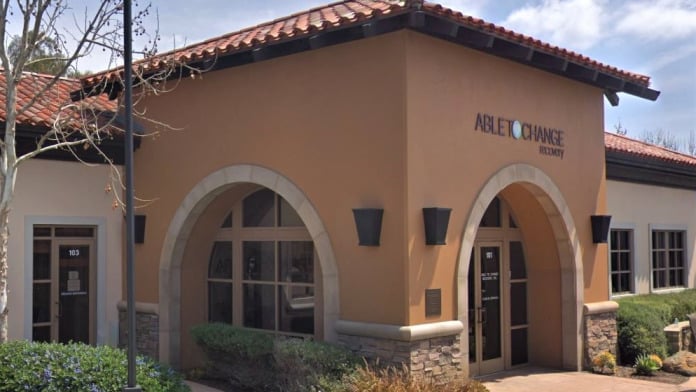
|
Glendale, CA | Jewel City Treatment Center is a private outpatient drug rehabilitation and mental health center located in Glendale, California. They specialize in helping people experiencing mental illness or addiction. They also provide dual diagnosis care for those with co-occurring conditions. They have a complete continuum of outpatient care, including out | Treatments Payment Options | If you are struggling with addiction and need help and don’t know where to find it. I promise this is the place. You will never find another opportunity for true sobriety and possibilities like you will find here.
Big Tony and big Kevin have changed my life in more ways than I could imagine.
I never thought long term sobriety was a possibility until I found jewel city.
They brought me in with open arms and opened my eyes to everything I can do possible.
Thank you jewel city for everything you do.
Tristan Green
1 year ago
Jewel City Treatment is amazing. Great staff who are very helpful and they actually care about you and your recovery. If you're looking for an addiction treatment center in the Glendale area, check JC out. Truly the best.
Stella Coleman
2 years ago
Recovery is hard for everyone and tends to brings out lots of fears and emotions. Were there some bumps along the way? Of course, but JC Treatment really has a good system in place, with an amazing team of staff, who really care about every clients recovery. I would highly recommend Jewel City Treatment to anyone in the Pasadena area struggling with addicition.
Charles Kyle
2 years ago
| ||
Glendale, CA | Glendale Adventist Alcohol and Drug Services is located in Glendale, California. Their center for behavioral health and recovery services offers psychiatry services. They provide acute psychiatric care, crisis stabilization and dual diagnosis treatment for chemical dependency and psychiatric disorders. Medicaid is accepted. Payment plans and financ | Treatments Programs Payment Options | I'VE BEEN TO 5 REHABS IN 4 CONTINENTS AND GAADS IS #1 ON MY BOOK. IT GAVE A FUNDATION FOR MY NEW LIFE.
ALL THE ARE GREAT UNDERSTANDING HUMAN BEINGS AND RECOVERING ADDICTS/ALCHOOLICS, SO WE SPEAK AND SHARE THE SAME LANGUAGE.
Marco sacchi
5 years ago
Overall experience was great! Run by loving caring people!
Jerry M
8 years ago
Did it's job. Great people. 9 years one day at a time.
Helen McNaught
9 years ago
| ||
Glendale, CA | Al – Anon offers community-based addiction support for adults, and families in Glendale, California. They also provide valuable resources, including community support, volunteer opportunities, and referrals. Treatment at Al–Anon includes group and individual-based support for individuals families, and friends, of loved ones struggling with add | Treatments Programs | Best clubhouse and support group around. I love that they have a great homemade Thai food restaurant and wonderful people that work there, especially the men at the front desk.
Absolutely warm and loving place with tremendous support and meetings. 💕🤟
Go and find out !
Celeste MD
4 months ago
I am a Chemical Dependency Counselor in the City of Glendale and I heard many great things about this place from several people in the community.
Rodriguez Rodriguez Espinoza
11 months ago
Good AA Group
StrangerMusic 1989
1 year ago
| ||
Top California Cities | |||||
Glendale, CA | Verdugo Hills Hospital outpatient services offers private mental health treatment to adults ages 50 and up in Glendale, California. They are a part of Keck Medicine of the USC hospital network and focus on helping seniors with behavioral health problems and addictions to alcohol and drugs. They accept Medicare and Medicaid. A great thing about thi | Treatments Programs Payment Options | This is a great hospital! All staff and doctors are so caring and respectful!
Christina
1 month ago
I had a complicated foot surgery at USC Verdugo and was in hospital for 3 nights. My care in every respect was exceptional. I have a hard time understanding some of the negative and highly critical reviews. Medicine is not easy and there is room for plenty of disappointment. But that is not necessarily the fault of the caregiver. My personal experience was to be cared for by highly motivated informed/professional and caring nursing and staff - - without exception. Also consistent with good management. There were no long delays in responsiveness to call buttons, medical needs, medicine provided on schedule, routine checking on me, etc. Before my surgery some of the so so reviews I saw left me a bit concerned. Further checking suggested this is not uncommon for even good hospitals. Hopefully me posting about my excellent care can provide some reassurance to others. Many thanks USC Verdugo, nurses, staff, hospitalists, PT & OT, case management, etc. And of course my surgeon Dr. Laura Shin and her staff.
paul marron
2 months ago
I have been to USC VHH for different things in all outpatient departments including the emergency room for my self and my family & always had the best experience.
Vahan K
2 months ago
| 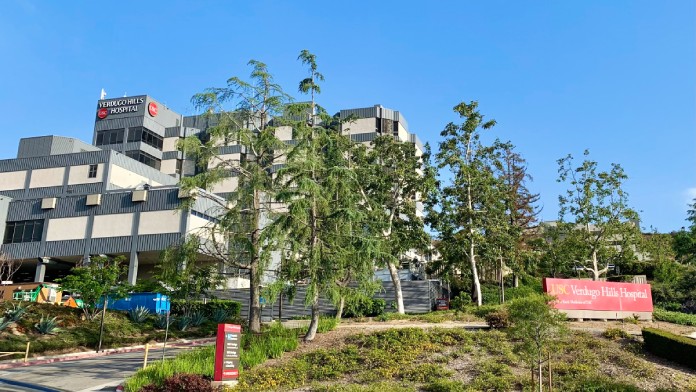
| |
Glendale, CA | Verdugo Hills Hospital, located in Glendale, California is a private alcohol and drug rehab that offers treatment for a variety of substance abuse addictions including co-occurring mental health disorders. They offer residential care providing long term support for addiction recovery, as well as flexible outpatient addiction therapy allowing patien | Treatments Programs Payment Options | This is a great hospital! All staff and doctors are so caring and respectful!
Christina
1 month ago
I had a complicated foot surgery at USC Verdugo and was in hospital for 3 nights. My care in every respect was exceptional. I have a hard time understanding some of the negative and highly critical reviews. Medicine is not easy and there is room for plenty of disappointment. But that is not necessarily the fault of the caregiver. My personal experience was to be cared for by highly motivated informed/professional and caring nursing and staff - - without exception. Also consistent with good management. There were no long delays in responsiveness to call buttons, medical needs, medicine provided on schedule, routine checking on me, etc. Before my surgery some of the so so reviews I saw left me a bit concerned. Further checking suggested this is not uncommon for even good hospitals. Hopefully me posting about my excellent care can provide some reassurance to others. Many thanks USC Verdugo, nurses, staff, hospitalists, PT & OT, case management, etc. And of course my surgeon Dr. Laura Shin and her staff.
paul marron
2 months ago
I have been to USC VHH for different things in all outpatient departments including the emergency room for my self and my family & always had the best experience.
Vahan K
2 months ago
| 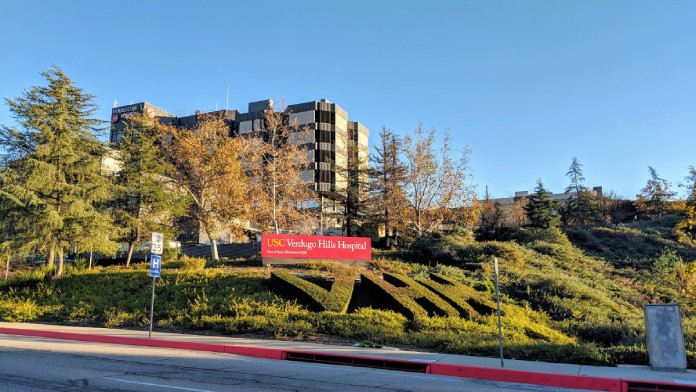
| |
Glendale, CA | Pacoima, California, is a neighborhood in Los Angeles and one of San Fernando Valley’s oldest communities. Located there is Didi Hirsch Via Avanta, a facility that provides residential mental health and substance use treatment for mothers. They allow women to bring children six years old as they receive treatment. You’ll have an opportunity to | Payment Options | Women and children court approved, very essential therapy and life structure.
Sandra Leon
8 months ago
Wow! Thanks to all those who worked at Via Avante when I was a resident there way back in 1990. My goodness. I walked through those doors January 18, 1990. Yes, 35 years ago. 34 years off my drug of choice. I learned some hard, good and valuable lessons while there. MOST OF ALL I GIVE GOD THE GLORY FOR THE THINGS HE HAS DONE WITHOUT HIM IT COULDN'T BEEN DONE
Sheila Smith
10 months ago
| ||
Purposes RecoveryAd This is an ad and Purposes Recovery is a paid advertiser. Paid advertisers may be listed first in search results. This ad may contain content provided by the advertiser. Rehab.com does not verify ad content or any reviews that are displayed. Learn More Los Angeles, CA | Purposes Recovery is an upscale drug and alcohol rehab center in Los Angeles, California. They offer a range of services including medically supervised detox, residential care, partial hospitalization, and intensive outpatient services. Care here is tailored to each client’s individual needs, with programs offered in a serene, peaceful setting in | Treatments Programs Payment Options | View Website (352) 306-0781 | Purposes Recovery has no reviews yet. Leave a review.
| 
15 15 



|
Glendale, CA | Center for Discovery Glendale offers residential addiction and mental health treatment for individuals, in Glendale, California. They also provide valuable community resources, including referrals, eating disorder treatment programs, and family support services. The Center for Discovery Glendale’s begins with a mental health assessment to sc | Treatments Programs Payment Options | I kinda wanna even out the one star reviews because in my experience it wasn’t that bad. I would say most of the therapists are kind and helpful and I met some really amazing people there and I do believe it helped me in my recovery. I feel bad for those who had negative experiences here because I know it’s a struggle:(
brooklyn Jamison
4 years ago
| 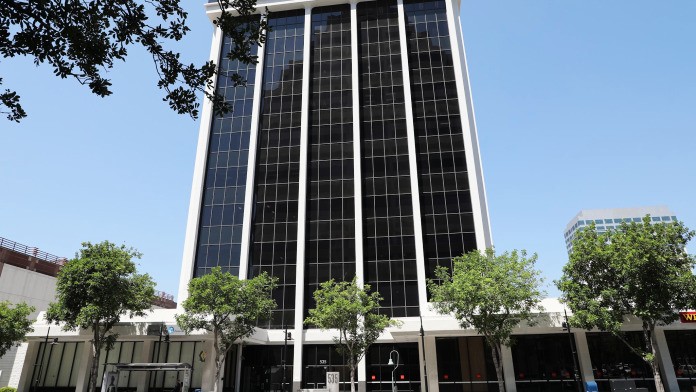
| |
Glendale, CA | Byram House, located in Glendale, California is a private alcohol and drug rehab that offers treatment for a variety of substance abuse addictions including alcoholism and opiate addiction. Specialty rehab programs at Byram House include tailored care focusing on women's specific needs and experiences and gender-specific addiction treatment addre | Treatments Programs | Cool house Byram
Virgilio Bello
5 months ago
Never there
kaspr herklotz
2 years ago
| ||
Long Beach, CA | Gratitude Lodge is a drug rehab facility in Long Beach, California. The center offers treatment for substance use disorder, alcohol use disorder, opioid use disorder, and co-occurring mental and behavioral health disorders. Gratitude Lodge provides medication-assisted treatment (MAT), detox, inpatient treatment, intensive outpatient programs (IOPs) | Treatments Programs Payment Options | What can I say? My stay at Gratitude Lodge was beyond my expectations. This was my first exposure to treatment so I was nervous; nonetheless, I was treated with the utmost respect and compassion. ❤️
From the start, the house was definitely a second home for me having traveled from the Midwest. I was warmly received on the first night and settled in comfortably.
So many staff members impacted my experience...from the start, Ryan, meeting my at the airport and providing sound advice for tlnext steps in my recovery, Peter for his fantastic music therapy sessions, James for his sincere commitment to my casework, Mario always for his listening skills, Trinity, Justin, Andrew...and everyone beyond.
Jesse Emswiller
2 months ago
Best experience of my sober life. I want to personally thank, Trinity, Justin, Mario, Ryan, Eli, Megan, Andrew, Lee, Kyle, James and Peter for everything and that they do. The best staff at any program I’ve ever been to (and I’ve been to a bit over my fair share). They actually care, they love you and they truly want to see you succeed. A special shout out to James, for always and I mean ALWAYS being in my corner. A shoutout to Trinity for being my confidant when I felt alone in the beginning. To Peter, who listened to all my bullshit with a smile on his face and some music in the background. The best place to get sober and the best people to ever be around. Truly a sober environment, where you learn how to be sober. Not just get sober but BE sober. I’ll forever remember my time here with love, respect and of course plenty of GRATITUDE!!!!!!!
Vivi
2 months ago
I had such a great experience here. I've been to alot of rehabs and I cant say the same for most of those. I didn't know if I wanted to come in or even be sober and James and Megan stayed out front with me for a long while, patiently helping me to make the right decision to come in and I am so glad I did. They have such a great team of people and I couldn't thank you guys enough. Shout out to James for always staying late and convincing me to not AMA lol i even decides to stay longer, you can tell he really pours his heart into his job and wants to help. Same goes for Megan and Ryan you guys are really the best.
Lucy Lopez
2 months ago
| 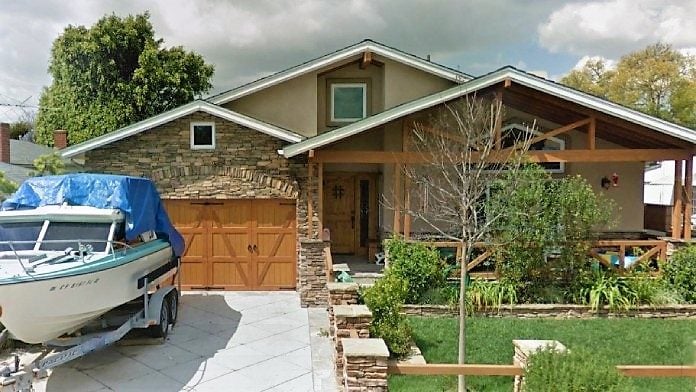
5 5 



| |
Los Angeles, CA | Numa Recovery Center is a detox and rehab facility in Los Angeles, California. They treat alcohol and substance abuse disorder. The is a co-occurring disorder treatment facility. Private pay options are available. Evidence based and holistic treatment is offered. Detox will take between 3-10 days. The length of detox is determined by individual nee | Treatments Programs Payment Options | This place goes above and beyond for its clients. Let’s just say I’ve been there more than once on my road to recovery. The staff have become my second family. They have an alumni person that’s reaches out to clients to follow up after treatment and I call her my guardian angel. This place saved my life more than once and I believe it could do the same for you or your loved one. Highly recommend!
Jason Perry
6 months ago
Numa is a wonderful facility helping many people suffering from the disease of addiction. The staff truly cares and shows the utmost attention to detail. I would recommend to any family member or friend!!!
Alex Spivak
8 months ago
Great place to heal and grow. The staff care and are willing to help if you let them. Educational and useful groups that prepare you for relapse prevention and coping skills etc. Definitely recommend if you or a loved one are looking for a treatment center that CARE about their clients.
Madalyn Butler
8 months ago
| 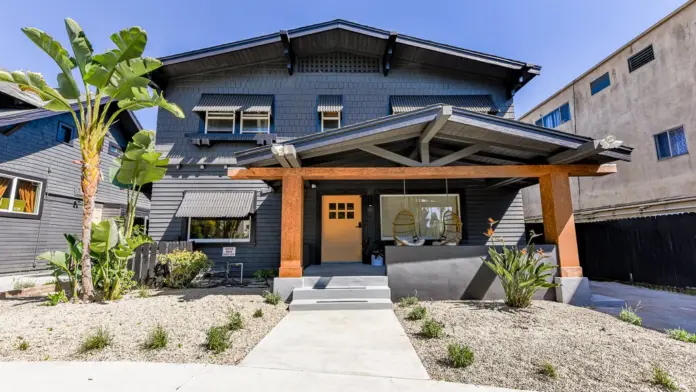
5 5 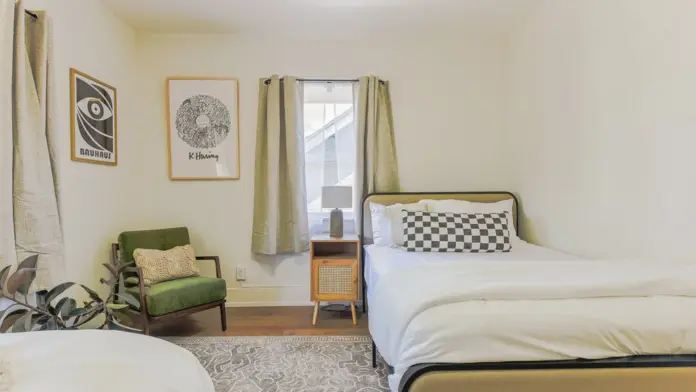



| |
Los Angeles, CA | The Detox Center – Los Angeles offers addiction and mental health treatment for adults in Los Angeles, California. They also provide valuable community resources, including referrals and family support services. Treatment at The Detox Center – Los Angeles begins with a mental health assessment to screen for symptoms of addiction or co-occurri | Treatments Programs Payment Options | Wow
I take my health/recovery very seriously and I am a very picky person. There’s not enough characters here to describe the Gratitude and Thx I have for this organization.
Top notch Case Management, Super Super Supportive Medical Staff. And Hi IQ class facilitators who bring the best to the table with each class. My Personal Therapist I have to set aside b/c She rates on The highest level possible in the best sense possible. Thank you ( T) … Five -star rating for sure
DJ Jenkins
2 months ago
Fantastic rehab run by professionals
Molakar
2 months ago
I'm incredibly pleased with the program here. The staff all are great people, they really care and are all in recovery themselves, which is very important to me. The facility is great. And seeing the transformation of the patients over the 30 is an experience you don't get anywhere else. Thank you to Tdcla for helping me become the person I love again.
Colin Campbell
2 months ago
| 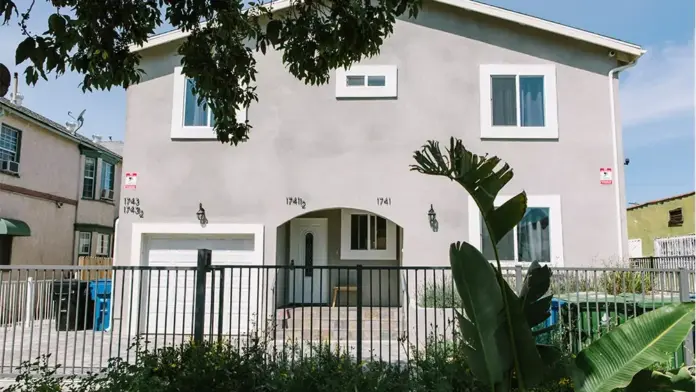
6 6 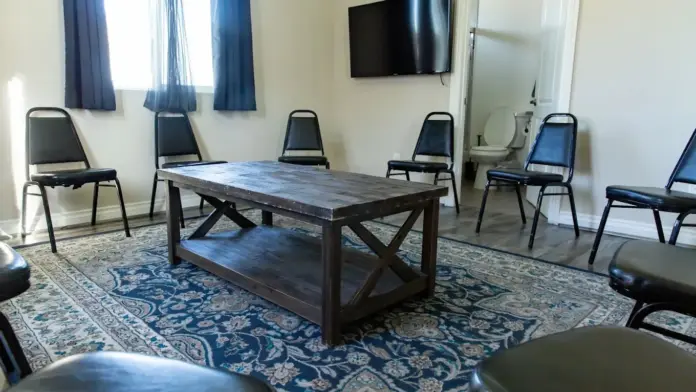
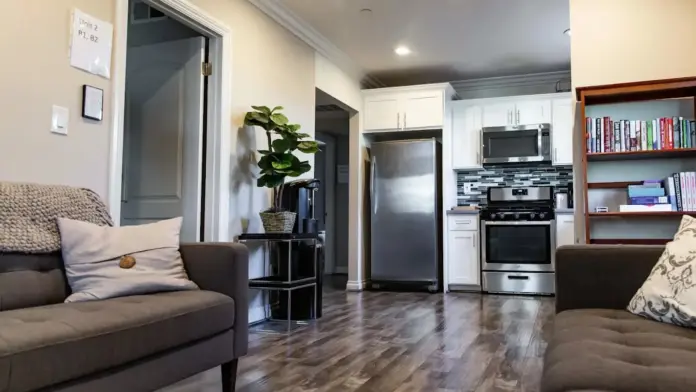
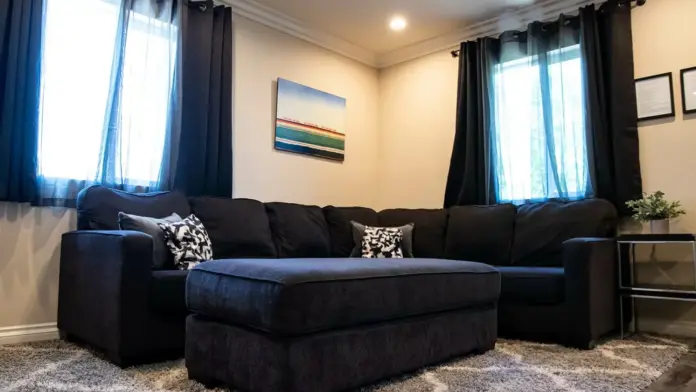

| |
Los Angeles, CA | At Hollywood Hills Recovery in Los Angeles, California, we provide a serene environment where individuals can embark on their path to sobriety with professional guidance from our addiction treatment experts. As you search for rehab near me in Los Angeles, consider our facility that is dedicated to fostering personal growth and healing from substanc | Treatments Programs Payment Options | Hollywood Hills Recovery truly sets the standard for compassionate, client-centered care.
As a current staff member, I can honestly say this is one of the most supportive environments I’ve ever been part of, both for clients and for the team. Everyone here, from the owners to the techs and everyone in between , plays a meaningful role in helping shape the future of our clients. The level of dedication, empathy, and professionalism is something you feel the moment you walk through the door.
The staff genuinely care about every individual who comes into the program. We work together every day to ensure clients feel safe, supported, and empowered on their journey to recovery from drugs and alcohol. It’s inspiring to watch lives change here, and it’s an honor to be part of a team that shows up wholeheartedly.
Hollywood Hills Recovery isn’t just a treatment center, it’s a community built on compassion, teamwork, and the belief that recovery is possible for everyone.
David Takamine
2 months ago
Great place. Great Staff. They care about you're recovery every step of the way. The support and care I've received here has helped me with my addiction and mental health and I could never be more thankful.
Tyler
2 months ago
I have enjoyed my stay at the Hollywood Hills Recovery Rehab , I must say they are very professional here and clean very caring as well. I appreciate all that the staff has done. Special mention to Christian he is very friendly and on top of his game. Picked me up directly from the airport with no trouble whats so ever. I recommend it to anyone who struggles with anxiety self esteem or building a community, this place has it all!
I highly recommend giving this Rehab facility
Sam Mata
2 months ago
| 
6 6 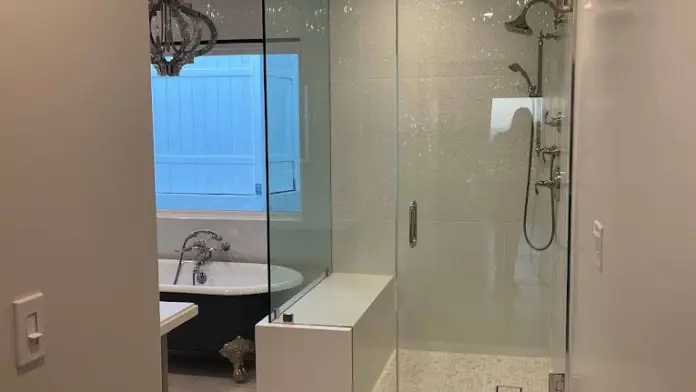



| |
Banyan Palm SpringsAd This is an ad and Banyan Palm Springs is a paid advertiser. Paid advertisers may be listed first in search results. This ad may contain content provided by the advertiser. Rehab.com does not verify ad content or any reviews that are displayed. Learn More Cathedral City, CA | Banyan Palm Springs is a luxury addiction recovery center ensconced in the serene, tree lined community of Cathedral City, California. They offer a complete continuum of care to support your success at every stage of the recovery journey, from medical detox to inpatient treatment to outpatient and aftercare. Banyan Palm Spring’s expert clinici | Treatments Programs Payment Options | View Website (561) 220-1814 | Banyan Palm Springs has no reviews yet. Leave a review.
| 
9 9 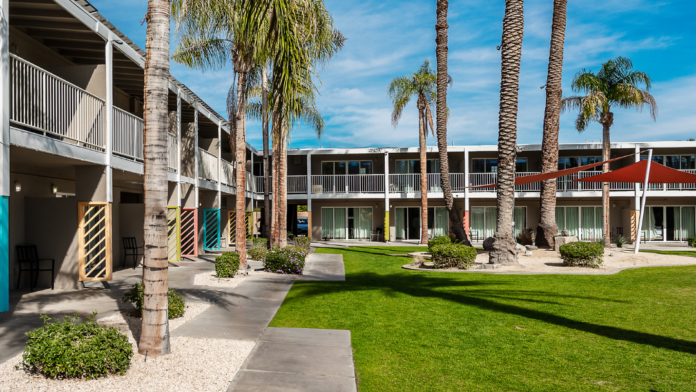
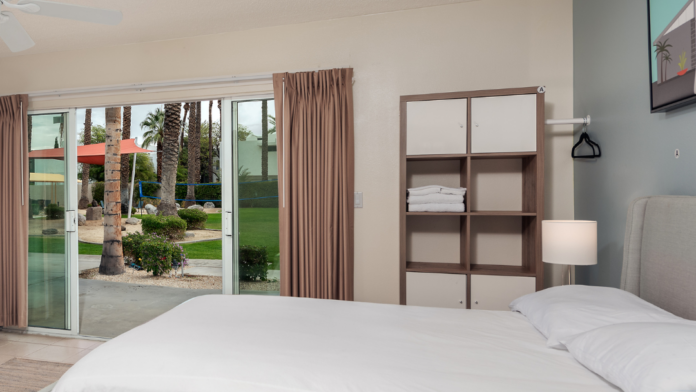
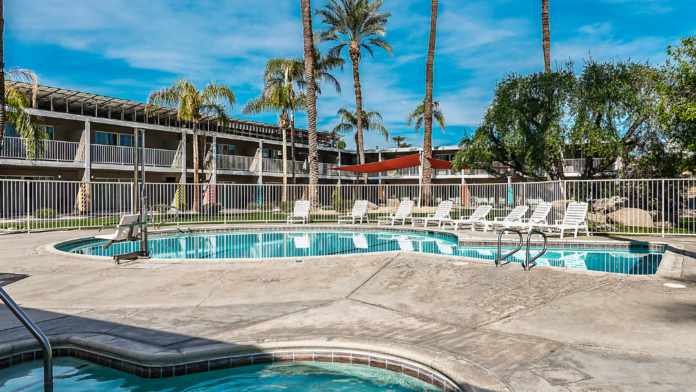
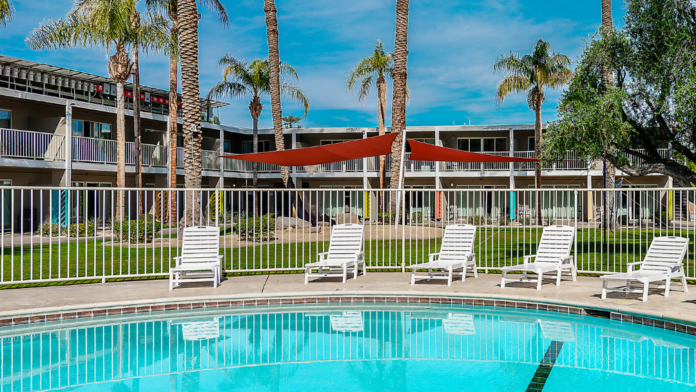
|
Los Angeles, CA | REVIVE Recovery and Detox Services, located in Los Angeles, California offers medical detox and residential alcohol and drug rehab programs to adults. Services include dual diagnosis care, medication-assisted treatment (MAT), pulsed electromagnetic field (PEMF) therapy, and neurofeedback therapy. Medical detox at REVIVE includes 24/7 supervision al | Treatments Programs Payment Options | Revive Detox quite simply saved my life. They are some of the most caring, dedicated, and professional staff I have ever met. I felt genuinely cared for and like every concern I had was met. I’m now 44 days clean and have referred two friends who also had the same positive experience as me. Thank you!
6 years ago
I cannot express enough gratitude for this incredible detox facility. From the moment you walk in, you feel like you’re stepping into a safe, warm home rather than a treatment center. The owner—an exceptionally smart, dedicated, and long-time successful doctor—has helped change and save countless lives, including mine. She is not only a phenomenal clinical psychologist but also a true sponsor at heart. She consistently puts others before herself, and somehow always knows exactly what to say and how to help when you need it most.
Her compassion is unmatched. If you genuinely want sobriety, she will do everything she can to support you. Her doors are always open, and she creates an environment that feels like family—supportive, comforting, and full of hope.
I never imagined I would reach one year sober, but here I am. My life has completely transformed for the better, and I owe so much of that to her, this home, and my Higher Power. This place is more than a detox—it’s the beginning of a new life. If you’re ready for change, this is the place to go.
Christopher Young
1 month ago
This facility more than cares for their clients! Their very professional and loving ❤️ I would recommend them to anyone that's struggling with substance abuse. Thank you Revive for my life.
Michael D.
Michael Dulman
11 months ago
| 
6 6 


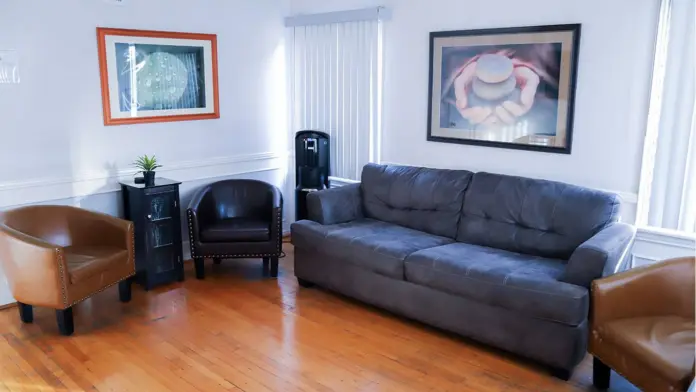
| |
Redondo Beach, CA | Clear Behavioral Health provides drug rehab services to adults living around Redondo Beach, California. They also offer programs for teens, but only at the outpatient, intensive outpatient (IOP), and partial hospitalization program levels. Here we’ll be focusing on their residential, or inpatient (IP), program, which only serves adults. They have | Treatments Programs Payment Options | Can’t say enough about the amazing and life changing work these guys do. Highly recommend!
Sergio Villasenor
1 month ago
Life-Changing Experience
Our family will always be grateful for this treatment center. From the moment one of our family members arrived, the staff made them feel seen, respected, and understood. Many of them are in recovery themselves, and that made such a difference — they truly get it.
The environment was warm, nurturing, and safe — exactly what our relative needed to begin healing. The people there, both staff and other residents, were genuine and supportive.
This is a place where real change and growth can happen. Their authenticity and care provide hope, community, and a new start.
Jill Milner
2 months ago
I came to Clear a few years ago desperately needing help for my substance use disorder. They worked with my insurance but more importantly than that they worked with me. The staff genuinely cared about my achieving long term sobriety and it showed. Their employees were nothing short of amazing from Program Director to the team of therapists, case managers, nurses, and technicians who not only insured my detox was comfortable but made me feel cared for. Would highly recommend this facility for anyone struggling with substance use and or mental health issues of any kind. I wish I could leave more than five stars.
Adam Byrd
2 months ago
| 
6 6 
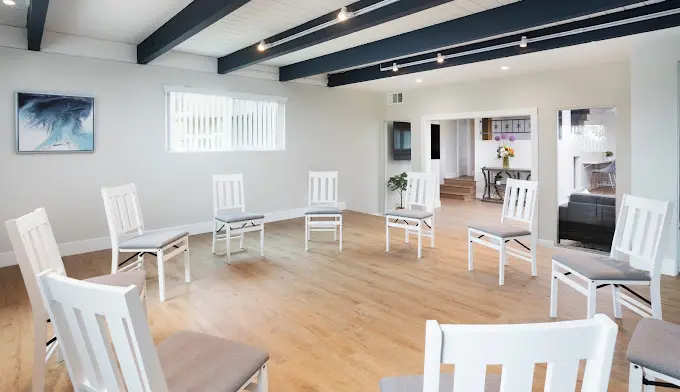

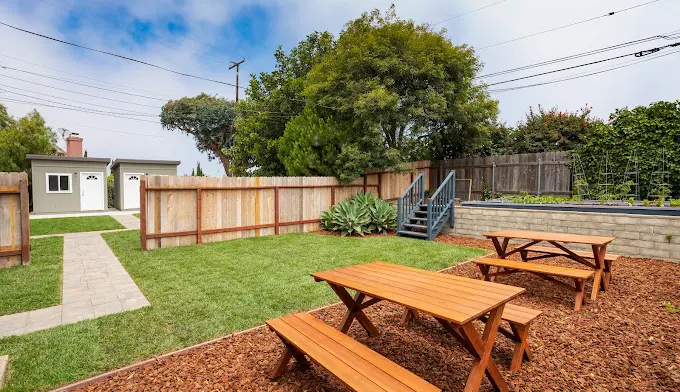
| |
Los Angeles, CA | The Canyon at Santa Monica is located in Los Angeles, California. They exist to help you overcome alcohol, opiate and other drug addictions. This facility also addresses dual diagnosis conditions. This makes them ideal for simultaneously treating addiction and mental health challenges. Their treatment options include partial hospitalization and an | Treatments Programs Payment Options | The Canyon was such an amazing experience in personal growth. Everyone on staff were incredible, providing an array of modalities and resources to help overcome some of life’s toughest challenges while deeply caring for the individuals they are treating. I have sincere gratitude for my time spent and feel a renewed sense of confidence in my ability to be my best version of self as a result of all that I have learned through the program. I highly recommend for anyone who wants to live healthier, feel better, find strength, and step into the life they want for themselves.
Cole Wilson
2 months ago
Amazingly caring and qualified staff; people that actually have a genuine interest in your recovery (not something that can be said for most rehabilitation programs). Diverse and dynamic curriculum that keeps days from feeling mundane/repetitive, the groups are not cookie-cutter bs.
The Canyon really goes the extra mile to advocate for their clients, ensure a healthy recovery environment, and inspire real change in the people they work with. 10/10 would recommend, special shout out to Antonio, Jesse, Lee, and the rest of the staff at canyon, will miss my time here!
Bailey Carter
3 months ago
⭐️⭐️⭐️⭐️⭐️ Highly Recommended
I’ve been on my recovery journey since 2023, and I’m now approaching a year of sobriety. I can honestly say that The Canyon and its staff were instrumental in that success. Before coming here, I had attended many programs but never received the true treatment and support I needed.
Antonio, the Executive Director, goes above and beyond for every client. When I called, he immediately sprang into action and secured my spot in treatment with unmatched drive and dedication. The therapeutic staff is exceptional—highly educated, knowledgeable, and deeply caring. Every group session provided real learning and takeaways that supported my growth.
What makes The Canyon different is the genuine care and community they foster. The environment they create allows you to feel supported, encouraged, and capable of building real recovery. Though I began my sobriety journey in 2023, I didn’t start truly recovering until I walked through their doors in the summer of 2024.
They saved my life, and I will be forever grateful
Cynthia Stone
4 months ago
| 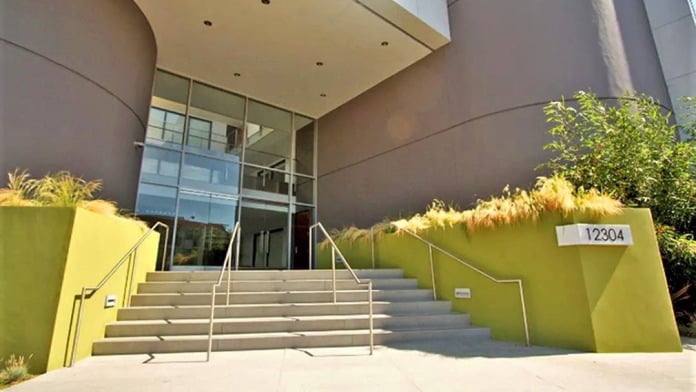
6 6 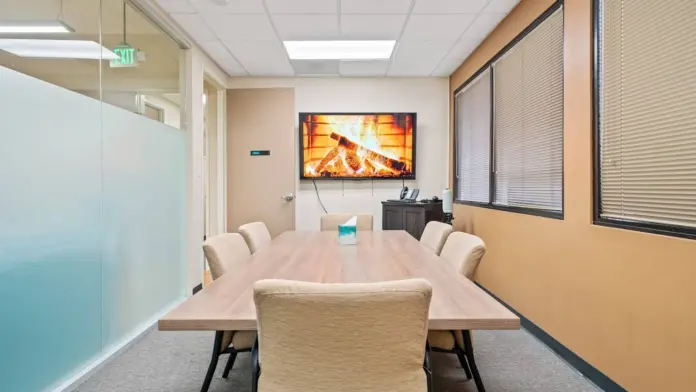
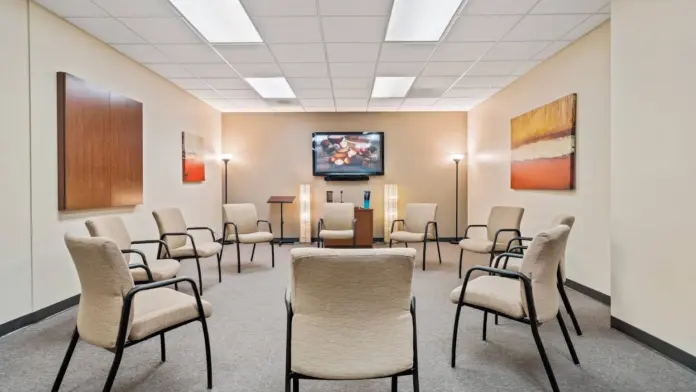
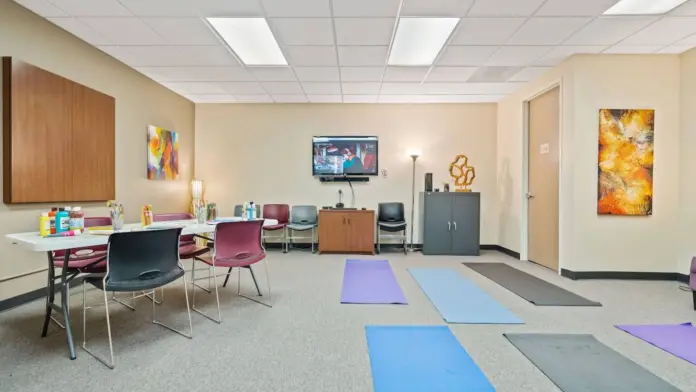
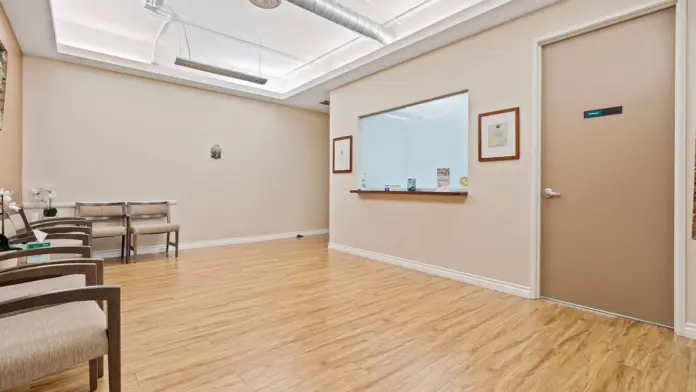
| |
Los Angeles, CA | Avedis Recovery provides substance abuse treatment in California. The facility is in the calm, serene area of Los Angeles, where you can schedule an in-person visit with one of their addiction specialists. They offer support for guests and family members. If guests need a higher level of care then they can provide referrals to their residential ser | Treatments Programs Payment Options | I was here for detox and then I flew back home.
But the staff was absolutely incredible, they truly cared and made such a huge impact on my recovery. Amanda is an amazing tech!!
Aryana Brackett
6 months ago
I have been to a multitude of treatment centers in and outside of California, Avedis Recovery is by FAR the most caring, authentic, and helpful place I have ever been to. It is the ONLY place that I was able to stay sober during my entire time and where I was able to find the confidence in myself to stay sober and where I found real growth. They care. Every other treatment center it was very clear that the management and program directors were really only involved for the money. The program director at Avedis is not, he and all other staff GENUINELY CARE!! Usually at other places you never see the director but here you see him almost everyday, he is involved and genuinely cares about people here and their sobriety. With the help of Avedis Recovery I was able to gain a newfound confidence in myself, my family’s trust, my faith in God, and most of all a clear and sober mind. If it wasn’t for Avedis I don’t know where I would be, but now I am almost 8 months sober and am actually happy and enjoying life. I give all the thanks to God and Avedis!
Eamon Steed
1 year ago
It’s a good experience to work with Avedis Recovery! So many touching stories of alumni. Very good attitude towards patients
Questicity Inc.
1 year ago
| 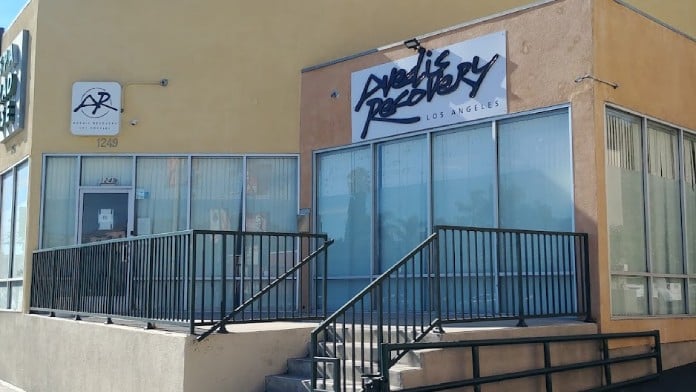
2 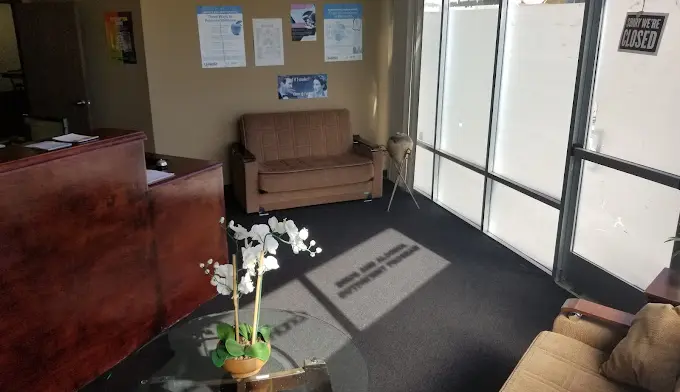
| |
Winnetka, CA | Maple Moon Recovery is a residential drug and alcohol addiction rehab. They’re based in Winnetka, California and their services are designed for adults. They offer medical detox, medication assisted treatment, inpatient and outpatient treatment for drug and alcohol addiction. The skilled team at Maple Moon Recovery has made it their mission to ma | Programs Payment Options | As an individual who has struggled with alcoholism, I can wholeheartedly recommend Maple Moon Recovery as a fantastic resource for anyone seeking help in their journey towards recovery.
From the moment I first contacted Maple Moon, I was met with compassion, understanding, and a genuine desire to help me overcome my addiction. The staff were incredibly knowledgeable and skilled, and they made me feel safe and comfortable throughout my stay. What I appreciated most about Maple Moon was the individualized approach to treatment. The staff recognized that every person's journey towards recovery is different, and they worked with me to create a personalized plan that met my unique needs and goals.The facilities at Maple Moon were also top-notch. The center was clean, comfortable, and well-maintained, and the amenities available were a great way to relax and unwind during my stay. Overall, I would highly recommend Maple Moon Recovery to anyone looking for a safe, supportive, and exceptional
2 years ago
My experience at maple moon can not be described in a few sentences. This is a great place to grow as an individual and get all sorts of help ranging from. Mental help to drug addition.they really played a major role in putting my life back on the right track
Paul Stoe
2 months ago
Maple moon has been a God send! Can’t express my gratitude for the care and compassion they’ve given me. Came into this Austin with so much resistance and they made my stay feel like home. From the food to the staff everything was Top Tier. If they had more stars I would give them 10. If you out a loved one is looking for a recovery center with integrity and a high degree of care, you’ve found the right place.
Bernard Rackley
4 months ago
| 
2 

| |
Los Angeles, CA | Luxe Recovery, as you can guess by the name, is a luxury addiction treatment center. The house is located in Los Angeles, California and is within walking distance from Commonwealth Nursery Griffith Park. You’ll be able to engage in their treatment programs which they offer in outpatient and inpatient settings. The difference between the two is t | Treatments Programs Payment Options | My time at Luxe Detox Center was nothing short of life-changing. When I arrived, I was scared, lost, and unsure if I could really turn things around. From the very first moment, the staff welcomed me with such genuine care that I immediately felt something I hadn’t felt in a long time — hope.
Every single person there touched my heart in their own way. The nurses, counselors, and support team weren’t just doing a job — they truly cared. They listened, they encouraged, and they stood by me through every difficult moment. There was never any judgment, only compassion and understanding.
And I can’t say enough about the chef. The love that went into every meal was something I’ll never forget. The food wasn’t just amazing — it was comforting, healing, and made with heart. Somehow, each plate reminded me that I deserved to be cared for again.
What makes Luxe so special is the way they make you feel human again. They help you see that recovery isn’t just possible — it’s beautiful. I didn’t just detox my body there; I started to heal my soul.
I left Luxe feeling stronger, clearer, and deeply grateful. This place gave me more than sobriety — it gave me a second chance at life. Thank you to every single person there for your love, your patience, and your belief in me. You’ll always have a place in my heart. ❤️ and a special shout out to lindsey katie laura shantel Danielle nick joe ash and brett
jon bruneau
2 months ago
Luxe helped me get sober and guided me in the beginning stages of Recovery. I highly recommend it.
Kevin Brisbin
3 months ago
Awesome place highly recommend. Ice unfortunately been to a bunch of rehabilitation centers and this one was by far the best I've been clean and continuing to do right since I left. If you want a place that will truly invest in helping you and your recovery look no to further :)
Jonathan Snyder
3 months ago
| 
5 5 



| |
California Behavioral HealthAd This is an ad and California Behavioral Health is a paid advertiser. Paid advertisers may be listed first in search results. This ad may contain content provided by the advertiser. Rehab.com does not verify ad content or any reviews that are displayed. Learn More Cathedral City, CA | Found in Cathedral City Cathedral, California, California Behavioral Health is a private rehabilitation center that provides addiction and dual diagnosis treatment for adults. This treatment takes a holistic approach to addressing addiction and ensures a well-rounded recovery journey through its inpatient program, intensive outpatient program, part | Treatments Programs Payment Options | View Website (760) 614-9800 | California Behavioral Health has no reviews yet. Leave a review.
| 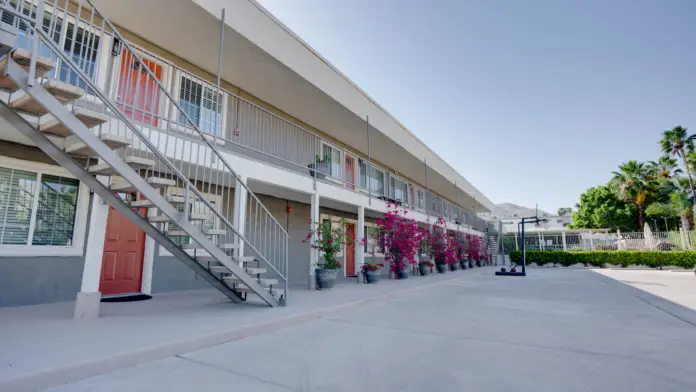
17 17 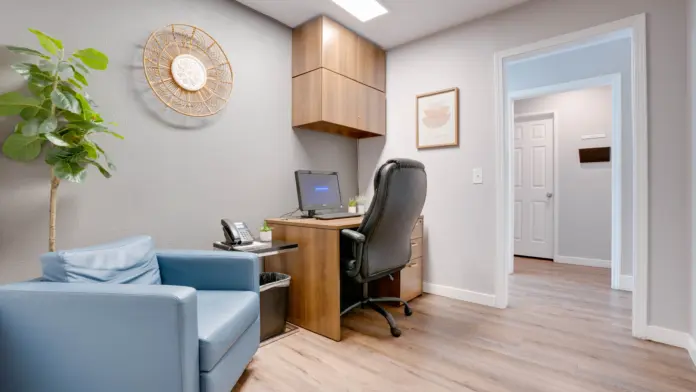
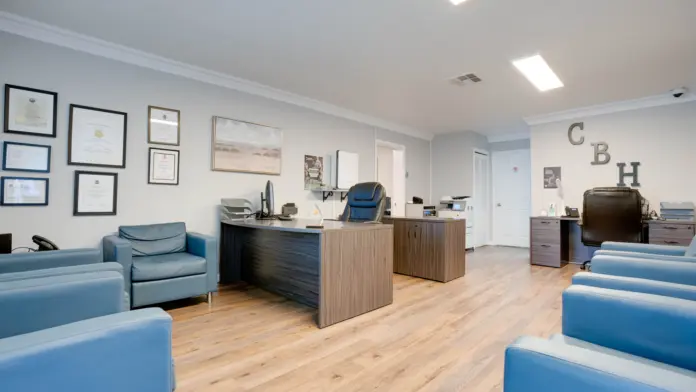
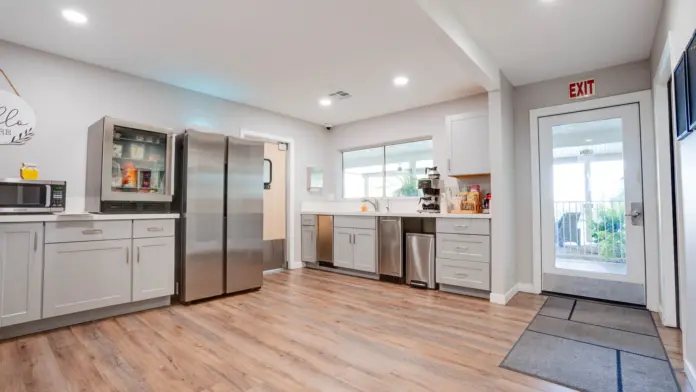
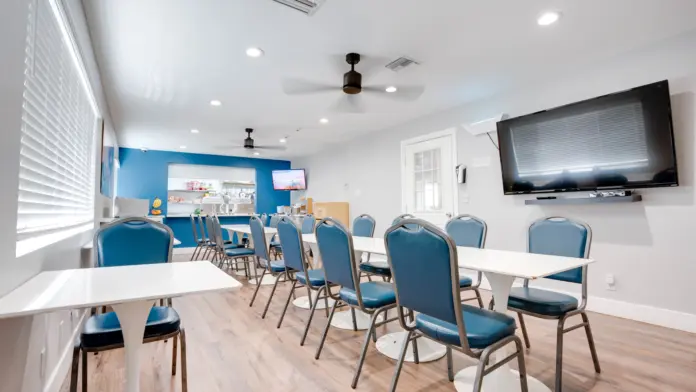
|
Encino, CA | Restore Health and Wellness Center offers medical detox, residential alcohol and drug rehab, and outpatient treatment for adults in Canoga Park, California. Services include dual diagnosis treatment, medication-assisted therapy (MAT), and holistic treatment such as art therapy, meditation, yoga, and exercise therapy alongside evidence-based modalit | Treatments Programs Payment Options | I didn't know what to expect when I showed up at Restore. I was scared and hating life. I ended up having a great adventure. Did everything run smoothly, no. But you show me a place that does and I will still call you a liar. I met empathetic, warm hearted and determined people who wanted to help me and see me get better. I have been through TX before so I had expectations, but after looking back at my time there, it was exactly what I needed. I am forever grateful that Restore answered the call when I needed help and hope the most. Thank you :)
Renae Dougherty
1 month ago
Restore taught me that relapse isnt failure its data about what needs to change next time.
Blanca Vaughn
1 month ago
My counselor saw my potential when I was at my absolute worst thats real love right there
boyy Mander
1 month ago
| 
4 


| |
Los Angeles, CA | Golden Road Recovery is a drug and alcohol rehab in Los Angeles, CA. They provide inpatient addiction treatment and medical detox. Golden Road Recovery is a drug and alcohol rehabilitation facility located in Los Angeles, California. The levels of care you can receive here include detox, residential treatment and aftercare. They have an accredita | Treatments Programs Payment Options | The facility is well run and you can tell the staff cares. Personable and knowledgeable clinicians and staff. Plus they bring their dogs, which is like getting an ancillary therapist.
Nick H
1 month ago
Golden Road saved my life. That is the long and short of it. I am forever grateful to the faculty, staff, and facility for all the love and support they provided me and the safe environment I was afforded during the most difficult time in my life. I received the highest quality of respect, compassion, and therapy; it has transformed my life and recovery. I will always be indebted to Golden Road and will look back on my time there with love and admiration. Thank you GRR!
Vertis McManus
2 months ago
Golden Road truly changed my life. The staff here care deeply -- not just about helping me with my recovery, but about helping me heal and rebuild my confidence. Every clinical and support member took the time to listen and guide me without judgment. The environment feels safe, supportive, and full of genuine compassion. Recovery isn't easy, but being surrounded by people who understand and believe in you makes all the difference. I am deeply grateful for the tools, hope, and community I found here.
LG
2 months ago
| 




| |
Los Angeles, CA | Starbridge Recovery Center, located in Los Angeles, California, is an alcohol and drug rehab center that provides addiction treatment services to men and women seeking recovery. They offer a luxury environment equipped to help individuals through medical monitoring, emotional healing, and guided support during the initial stages of treatment. Indi | Treatments Programs Payment Options | This is the best place to be ! They saved my life and helped me find myself. If you or anyone you know needs help, this is the best place to be!!! The staff is great! I love y’all Starbridge !
Caution 2Solidd
4 months ago
I was worried about my loved one going out of state for treatment. But it was the best thing that he could have done. I am grateful for all of the staff and the great team that helped get him in the door. I know this is just the beginning and everything is a lot better than it was.
PHM INC
5 months ago
Amazing facility, staff, and resources. Not my first treatment center but definitely the most beneficial one. Would highly recommend to anyone struggling with substance abuse and/or mental health.
Grace Arnold
6 months ago
| 




| |
Los Angeles, CA | Novo Detox is an alcohol and drug detox treatment center located in Los Angeles, California. They provide dual diagnosis treatment, residential detox and inpatient rehabilitation. Self pay is accepted. Daily rates vary depending on your treatment plan. Residential detox can last anywhere from three to 14 days. It will all depend on each individual | Treatments Programs Payment Options | Being my first time to a treatment/detox facility with unset expectations and unknown details I found it stressful.
The staff were very helpful and understanding in explaining the process and the overall goal of their facility.
The program is very well thought out through group work, individual sessions, outside facilitators that share their life experiences.
I also found the staff very involved in assisting with the aftercare goals (sponsors, therapy, groups) tailored to the individual.
The work is hard and challenging in the beginning but worth it for achieving your goals and better understanding of yourself.
2 years ago
Novo Detox changed my life! I have been thru several “detoxes” but none were as good as this one’. The staff is amazing and extremely helpful. I have a lot of tools to take home to continue my sober life. Many thanks for Novo for bettering/changing my life!
Christine Beldowicz
1 year ago
Novo detox was a great experience. I came in a broken person. I'm leaving with hope and am forever greatful. At a new lease on life. The staff is outstanding. The groups are very educational and fulfilling. I suggest anyone who's struggling with the disease of addiction or alcoholism to give them a call. They care for you when you don't.
1
1 year ago
| 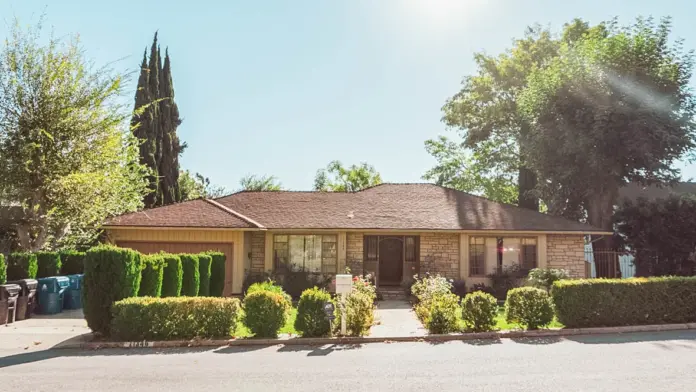
4 



|

Glendale is the 11th most expensive city nationwide for addiction treatment affordability, with an average cost of addiction treatment of $64164. This is higher than the average cost of $56654 for addiction treatment in California and higher than the national average cost for drug rehab of $57,193.
The costs of drug and alcohol rehab in Glendale vary widely and depend on several factors, including:
The costs of addiction treatment listed for cities and states are averages based on the cost of medical detox, inpatient rehab, outpatient rehab, and medication assisted treatment. These averages are high due to the cost of medical detoxification and residential inpatient rehab programs.
These numbers also reflect the raw cost of drug rehab, before any insurance coverage. The typical individual seeking addiction treatment can expect to pay much less for outpatient or intensive outpatient services than the averages listed below.There are many ways to pay for drug rehab in Glendale. Most rehab treatment centers accept cash or self-payment, as well as private health insurance. However, there are many treatment centers in Glendale that accept Medicaid and Medicare, or offer sliding scale payments or other low-cost payment options. Here's the complete breakdown of how to pay for addiction treatment near Glendale.
Cigna is the most widely-accepted insurance for drug rehabs in Glendale, with 6 treatment centers in the city accepting their insurance. Aetna is the 2nd most popular with 5 treatment centers accepting it followed by Blue Cross Blue Shield in 3rd accepted by 5 drug rehabs.
Glendale has the 329th highest rate of drug use nationwide among nearly 400 cities surveyed. This number reflects the combined use of cocaine, heroin, meth, and marijuana, displayed individually below. The percent shown for each drug represents the number of residents in Los Angeles county that have reported ever using the following drugs, so these numbers should not be interpreted as direct evidence of current drug use in Glendale or Los Angeles county as a whole.
In 2023, Glendale had the 248th highest number narcotics violations out of 330 cities nationwide, with a total of 196 reported drug-related incidents that year. This includes cases of public intoxication, drug arrests, narcotics found during house calls and traffic stops, and any other drug-related crime.
Keep in mind these numbers are dependent on accurate record keeping and reporting laws by local police and sheriffs, and may not fully reflect all drug related crime in Glendale.All values are per 100,000 population.
Source: https://cde.ucr.cjis.gov/LATEST/webapp/#/pages/explorer/crime/crime-trend